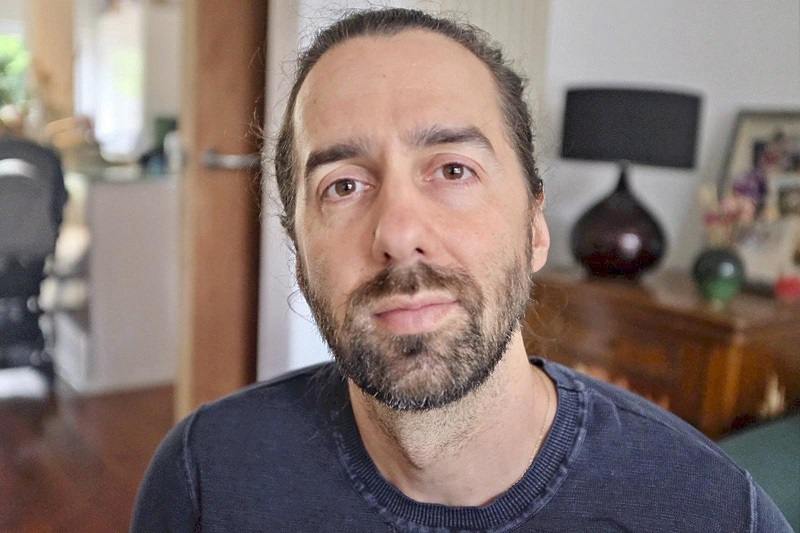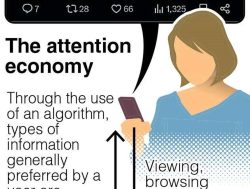Digital tech rushes forward / Digital tech riles public in ways incompatible with democracy

Jamie Bartlett
The Yomiuri Shimbun
17:01 JST, May 20, 2021
The Yomiuri Shimbun conducted an online interview with social media researcher Jamie Bartlett in which he spoke about the effects of digital technology on democracy. The following edited text is excerpted from the interview.
People in the 1990s seemed to have an extremely optimistic view that digital technology, because it seems to be free and borderless and difficult to control, would invariably lead to autocratic regimes, like in China, to somehow collapse. So [these regimes] wouldn’t be able to manage the information, they wouldn’t be able to control it properly.
I remember there’s a famous line of [Microsoft cofounder] Bill Gates’ where someone remarks to him that the Chinese government will try to control the internet, and he laughs and says: “Well, good luck. You know, that’s gonna be like trying to nail jelly to the wall.” Well, it turns out, you could just nail a huge bowl onto the wall and trap it, and that’s basically what they’ve done.
One of the things we’ve really woken up to in the last five years is that these digital technologies aren’t inherently democratic.
Because there is digital technology in every single device in the home, if it’s controlled by someone in the center, they suddenly can control every aspect of your life, from the click of a button. In an autocratic system, it allows a more centralized control — they can monitor everything. If there had been smart fridges and smart, self-driving cars in Soviet Russia, it would probably still be going now.
New technology does not care [about democracy]. We’ve been cast adrift into this world, this sea of information. As a result, all we can do is simplify. That tends to make us — all of us — more emotionally driven. That is why you see politics becoming more and more about emotions and tribes and what team are you on.
So we read articles that corroborate our own sort of dislikes of other people. You’ve ended up having a kind of polarizing effect, where people are sharing information from their own sides. They argue with each other really aggressively.
All the political parties are becoming more driven by this angry, emotional clickbait logic.
Making this worse is the fact that the platforms that we share this information are designed to keep us addicted, to keep us scrolling, to keep us posting, to keep us checking.
People will go onto YouTube expressing a vague interest in some kind of soft conspiracy or anti-government video. YouTube then automatically gives five more videos, 10 more videos, that they suggest or recommend because they’re of a similar content. And before you know it, someone has been recommended hundreds of videos, often becoming more and more radical and more and more extreme.
And you’ll end up in these rabbit holes where they become obsessed over these subjects.
So you have millions of people being pushed slightly by recommendation engines into becoming more and more obsessed over certain subjects.
Democracy is a system that ensures that disagreements are dealt with peacefully through compromise rather than violently. If you can’t agree to compromise, then democracy doesn’t really do its job anymore.
[While technology companies] bear some responsibility, our education systems, our governments also bear some responsibility because they could see what was happening and didn’t do anything to change it. They did very little.
Media literacy has probably become the single most important thing you can learn in school. A combination of understanding how the technology works, why you trust some sources over other sources, why your own human cognitive biases are more powerful than Google’s algorithms. We need to learn about our own weaknesses.
Technology is always evolving and adopting and adapting, but democracy is a kind of technology as well. It has in the past evolved and changed quite slowly and often through struggle and wars and revolution. I guess democracy now needs to go through that again somehow.
Jamie Bartlett
Born in 1979 in Britain. In 2010, he founded the Centre for the Analysis of Social Media at the British think tank Demos. He is the author of “The People vs Tech: How the Internet is Killing Democracy (and How We Save It).”
Popular Articles
Popular articles in the past 24 hours
-

Japan's H3 Rocket Failed in Latest Launch, Says Official
-

Quake Beneath Tokyo: Utilize New Damage Estimates for Disaster Ma...
-

Figure Skater Kaori Sakamoto Set to Compete at Olympics in Milan,...
-

Japanese Prime Minister Sanae Takaichi to Move into Official Resi...
-

JAXA Stops Rocket Launch Broadcast amid Engine Issues
-

Imperial Family Views Photo Exhibition Themed on Wartime Tokyo to...
-

JAXA Launches 8th H3 Rocket from Japan’s Kagoshima Pref.
-

Apple Growers in Japan's Aomori Turn to Peaches Amid Rising Tempe...
Popular articles in the past week
-

Israeli Tourists Refused Accommodation at Hotel in Japan’s Nagano...
-

U.S. Senate Resolution Backs Japan, Condemns China's Pressure
-

Kenta Maeda Joins Rakuten Eagles; Returns from American MLB to Ja...
-

Sharp Decline in Number of Chinese Tourists But Overall Number of...
-

China Attacks Japan at U.N. Security Council Meetings; Representa...
-

Japan Set to Participate in EU's R&D Framework, Aims to Boost Coo...
-

Japan Backs Public-Private Cooperation on Economic Security; Nati...
-

Bus Bound for Hokkaido's New Chitose Airport Catches Fire Wednesd...
Popular articles in the past month
-

Tokyo Economic Security Forum to Hold Inaugural Meeting Amid Tens...
-

Keidanren Chairman Yoshinobu Tsutsui Visits Kashiwazaki-Kariwa Nu...
-

Imports of Rare Earths from China Facing Delays, May Be Caused by...
-

University of Tokyo Professor Discusses Japanese Economic Securit...
-

Japan Pulls out of Vietnam Nuclear Project, Complicating Hanoi's ...
-

Govt Aims to Expand NISA Program Lineup, Abolish Age Restriction
-

Blanket Eel Trade Restrictions Rejected
-

Key Japan Labor Group to Seek Pay Scale Hike
"Society" POPULAR ARTICLE
-

M4.9 Earthquake Hits Tokyo, Neighboring Prefectures
-

Israeli Tourists Refused Accommodation at Hotel in Japan’s Nagano Pref., Prompting Protest by Israeli Embassy and Probe by Prefecture
-

M7.5 Earthquake Hits Northern Japan; Tsunami Waves Observed in Hokkaido, Aomori and Iwate Prefectures
-

Tsukiji Market Urges Tourists to Avoid Visiting in Year-End
-

M5.7 Earthquake Hits Japan’s Kumamoto Pref., Measuring Upper 5 Intensity, No Tsunami Expected
JN ACCESS RANKING
-

Tokyo Economic Security Forum to Hold Inaugural Meeting Amid Tense Global Environment
-

Keidanren Chairman Yoshinobu Tsutsui Visits Kashiwazaki-Kariwa Nuclear Power Plant; Inspects New Emergency Safety System
-

Imports of Rare Earths from China Facing Delays, May Be Caused by Deterioration of Japan-China Relations
-

University of Tokyo Professor Discusses Japanese Economic Security in Interview Ahead of Forum
-

Japan Pulls out of Vietnam Nuclear Project, Complicating Hanoi’s Power Plans






